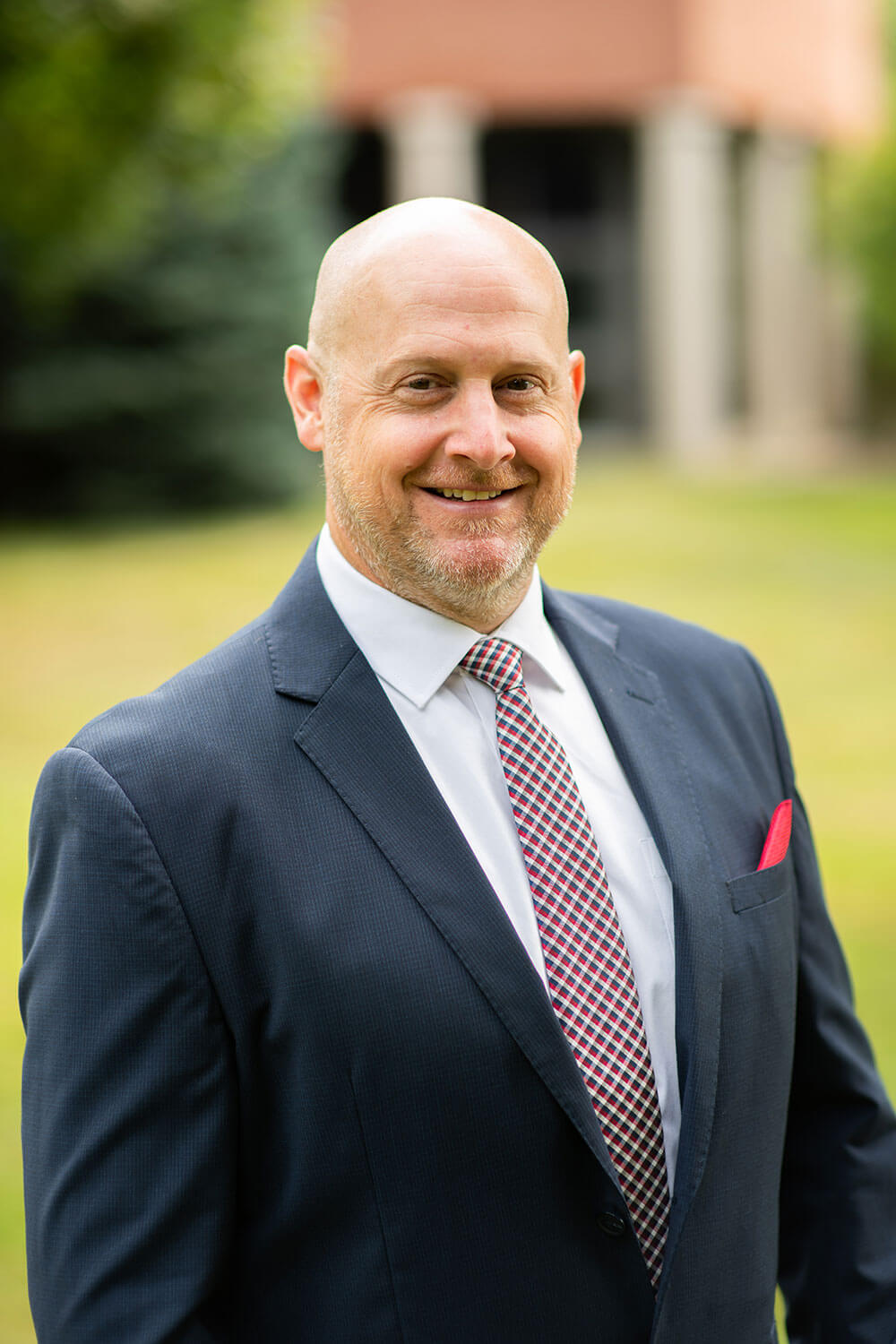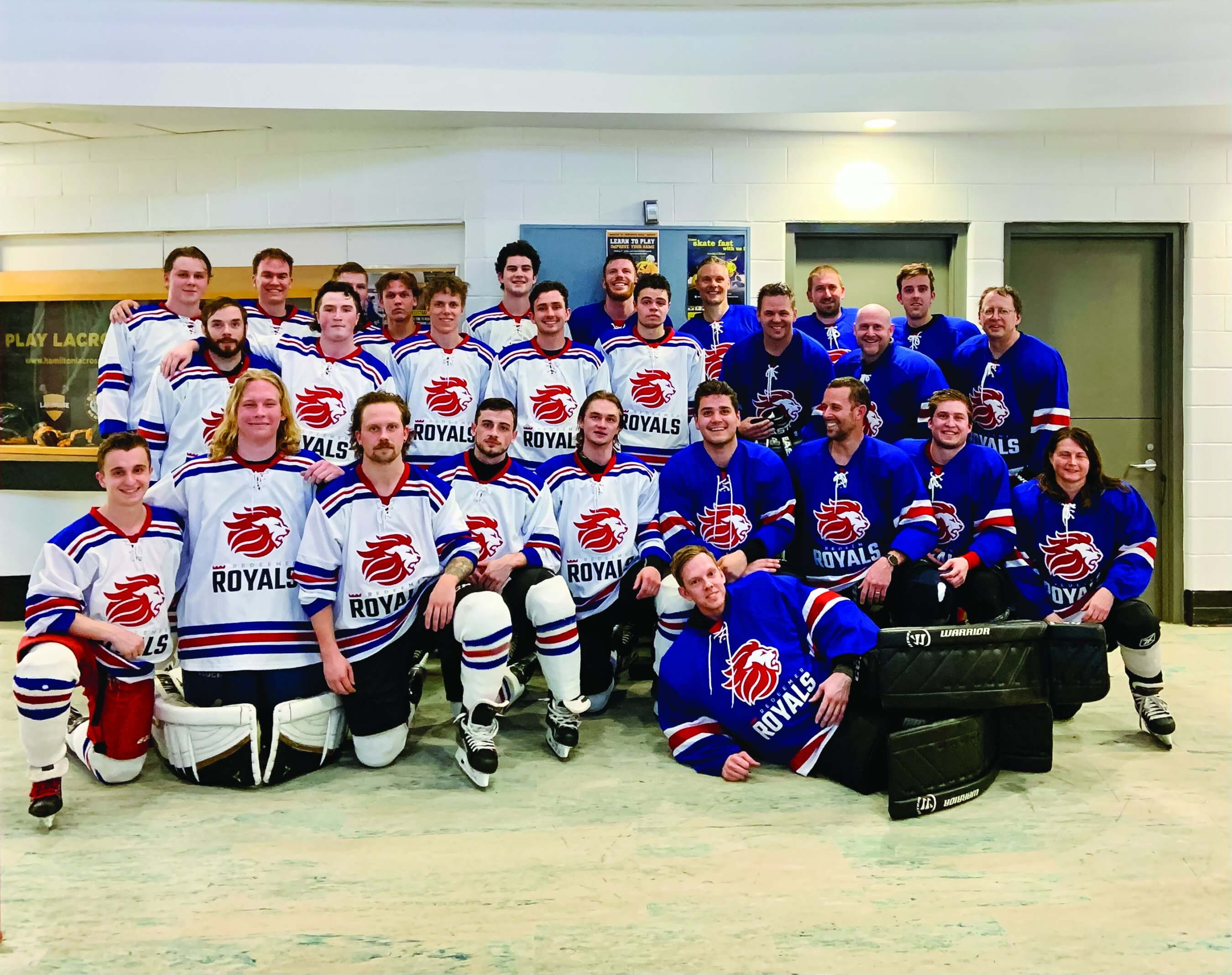Tell us about your journey to the president’s role. What do you think has prepared you for this role?
I started working at Redeemer as a faculty member in 2007. My wife Anna and I were living in the United States at the time, and there were a few pathways open, but we really felt God leading us back to this area and in particular to Redeemer. I knew a bit about Redeemer, having grown up in the Reformed community locally. Coming into the history department and experiencing [the mission] in the classroom, I gained a much deeper appreciation for what Redeemer was and could be. In particular, seeing the spiritual formation of students in the classroom made me very passionate about the mission and its potential impact on the church and on the wider world.
In 2010, I applied to become dean of humanities, in part because I was excited to take a more active role in program development. My time as dean helped me to understand the complexities of the academic program and the functioning of the university as a whole. It also helped me to develop a stronger sense of the strength and value of the liberal arts and sciences approach for students. In 2013, I added the role of associate provost where I was able to help lead the renewal of the core program.
In 2015, I was asked to consider undertaking a shift out of the academic area to lead marketing and enrolment. Having had some previous training in marketing, I felt called to take on the new role to help support recruitment and brand efforts during a difficult enrolment climate. While serving in that role, I was able to develop a deeper knowledge of Redeemer support communities. It also helped me to understand the symbiotic relationship between academic development and the needs, hopes and goals of students and their parents.
“I was excited to step into the role, aware of the challenges, but full of hope for the future when considering all that God has done at Redeemer.”
As a result of leadership transition in 2017, I was appointed vice president of external relations and enrolment and added donor engagement and strategic relations to my portfolio. I found real joy and energy in connecting with Redeemer graduates, community partners, strategic stakeholders, businesses and the donor support community.
All of these various roles provided me with a broad set of experiences that made the value and importance of Redeemer’s mission come alive for me in ways that were very exciting.

In 2020, I transitioned back to the academic area as provost and vice president, academic under president Dr. Robert Graham. Amidst enrolment growth, I was tasked to ensure that we were stewarding the academic program in ways that were faithful to the founding mission and vision, that were sustainable, and that were relevant and meaningful to prospective students, parents and stakeholder communities. It was exciting to be able to lead in this way as we developed the BBA program, the university’s first new degree program in 20 years, as well as enhanced faculty recruitment and hiring processes, new initiatives, and kickstarted academic restructuring conversations.
When I was approached on behalf of the board to think about applying for the president position, reflecting on my experiences and where I thought God could use me, I really felt all these different roles had provided me with a background to lead well with a deep appreciation for the complexity of the university and the profound impact it could have on students and the broader community. I was excited to step into the role, aware of the challenges, but full of hope for the future when considering all that God has done at Redeemer.
How did you develop an interest in and passion for Christian higher education?
Prior to my time at Redeemer I was a graduate student on secular campuses and had been able to participate in student ministry and spiritual activities in those spaces. I saw firsthand the transformative period of early adulthood during these post-secondary years. It’s a time when identities become deeply formed, deeper questions about life are asked and lifelong patterns are being built. Seeing students become grounded in God’s unfolding story of the world while exploring the nuances, theories and content of their disciplines caused me to develop a greater and deeper appreciation for Christian university education – especially here at Redeemer, which is grounded in a Reformed worldview and framework. I began to appreciate that learning is not isolated from our spiritual walk or journey, but that learning itself is a spiritual activity. It was during those early years at Redeemer that I became really passionate about the discipleship impact of university learning from a Christian perspective.
What are some challenges you see facing Christian universities?
In general, Christian universities are always facing a sustainability challenge, particularly in Ontario. Government funded secular universities have guaranteed revenue flows and are therefore able to charge lower tuition, whereas non-government funded not-for-profit Christian universities rely on tuition and donations as major revenue streams. With ongoing economic pressures, students are increasingly reluctant to take on significant student debt, so affordability is a major barrier for Christian universities.
“… we really felt God leading us back to this area and in particular to Redeemer.”
Thankfully, God has been extremely generous in providing so that Redeemer can have tuition that is approximately in line with public institutions in Ontario, enabling many students and families to be able to afford Redeemer. Beyond that, one of the ways that sustainability can be accomplished is through a constant increase in enrolment. However, this can lead to pressure to compromise on mission to meet the need for more students.
The broader culture is increasingly hostile to religion in general, but in particular to Christianity. A Christian university that wants to create a dialogical process of engaging one’s self, thoughts and feelings in the context of having an external source of authority, power and creativity in the form of God is challenging in the context of the secular worldview of self-authentication at work around us. In our culture today, where meaning, purpose and belief come almost entirely from within, attributing authority, meaning and identity to a person or being outside of ourselves is viewed with suspicion and hostility.
What are some of the most critical tasks for you moving forward as president?
Firstly, above and beyond anything else, it is crucial to continue to clarify, reaffirm, renew and share the vision of Christian university education rooted in the Reformed Christian worldview and tradition. I think it’s always important that an institution’s mission is front and centre. That has to be task No. 1, because all the other tasks flow from that.
Secondly, we need to continue to find ways to ensure that the academic program remains faithful to the liberal arts and sciences mission, while developing the program in ways that make sense for today’s students and the kind of world those students enter when they leave Redeemer. That includes ensuring we’re developing the right degree programs, that we’re delivering them in ways that make sense to the students and that we are driving the learning outcomes that we have as a university to ensure that we continue to meet a high academic standard.
What are some changes you see coming for Redeemer?
We’re currently in a strategic plan, and there’s a strong commitment to completing it. We’re going to expand the number of degree programs, we’re going to continue to see enrolment growth thanks to the tuition restructuring initiative in 2019, we’re going to see completion of campus renewal projects, roads and parking, and of course, the integration of the Charis Centre.
“… it’s always important that an institution’s mission is front and centre. That has to be task No. 1, because all the other tasks flow from that.“
In 2023, the groundwork, initial planning and ideation begins for the next strategic plan. It’s probably too early to talk about major changes that will be coming beyond 2025. An organization always needs to be improving and looking at best practices in the field and seeking to bring the skills and giftedness that God has given to us as individuals, leaders, faculty and staff in ways that continue to improve the impact of the mission and vision. We want to change with purpose, and do it together. I think we’ve been doing fairly well at moving the institution forward in that way and the goal is to continue that with the next strategic plan.
In what ways does a Christian liberal arts and sciences university education still make sense for the next generation?
As Christians, we identify our calling in the world first and foremost as living for God’s glory and making the gospel known. A Christian liberal arts and sciences education provides a holistic framework for understanding the created world and ourselves as created beings. The desire to be a liberal arts and sciences institution emerges first and foremost from a biblical understanding and worldview of how God created us and the world around us. In the world of increasing specialization, and in a world where immediate satisfaction, enjoyment and entertainment are increasingly being prioritized, we desperately need people who can think holistically about life in an eternal way, not simply in a temporal way. We need people who can bring the hope and love of Jesus Christ to the world around us through their work, the organizations they’re a part of, their involvement in community and their engagement with others. The liberal arts and sciences approach, framed and grounded in a Christian context and perspective, is just an incredible way to do that.

Lightning Round
What do you like to do in your spare time?
Reading, as well as playing and coaching hockey.
What books are you reading/have you recently read?
The Life We’re Looking For by Andy Crouch, and Everything Sad Is Untrue by Daniel Nayeri.
Tell us a favourite memory from your years working at Redeemer.
There are many, but one that stands out is the time students from a senior seminar surprised me by leaving McDonald’s cheeseburgers outside my office door. That’s the kind of relationship faculty develop with students!
What’s a favourite Scripture passage or book of the Bible?
“Here is a trustworthy saying that deserves full acceptance: Christ Jesus came into the world to save sinners—of whom I am the worst. But for that very reason I was shown mercy so that in me, the worst of sinners, Christ Jesus might display his immense patience as an example for those who would believe in him and receive eternal life.” 1 Timothy 1:15-16
Visit the 40th Anniversary website to view a historical timeline and a special video presentation celebrating 40 years of Redeemer.